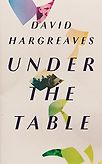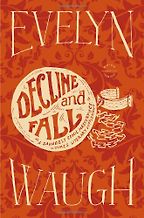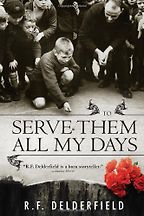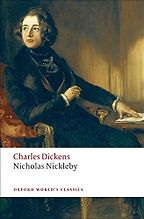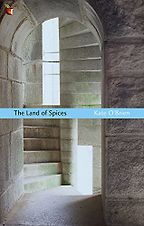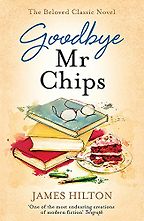Your novel, Under The Table, is written by a schoolmaster about a schoolmaster. The schoolmaster as subject is a rich strain in fiction, but the schoolmaster as author is a much rarer beast. Why might that be?
Absolutely right. One of the reasons may be that schoolmasters, historically, have earned very little. You think of someone like Mr Mell in David Copperfield, whose mother was on poor relief. They’ve been of uncertain social and economic status. They didn’t always have a great deal of time. Kingsley Amis worked part-time packing boxes for the local newsagent even when he was a young lecturer at Swansea University with a wife and two kids. That sort of genteel poverty seems to me to provide some of the social context which explains why schoolteachers aren’t all that well represented among authors. It’s only in relatively recent times that they have become pretty well-paid.
I wonder if it’s also because schoolteachers are expected to be conventional, whereas the creative arts reward nonconformity if not outright rebellion.
There’s perception and actuality. Schoolteachers often have a very conflicted idea of response to authority. We’re so very good at giving orders and so bad at taking them. Even as adults, there’s something of us not just of the angry teenager but of the frustrated angry child. Prep-school teachers, when they’re cross, can sometimes behave like prep school kids; they slam doors and stamp. Senior-school teachers strike up attitudes and look for ways to be subversive. We end up imitating the age group that we teach.
Do you think it’s possible to have a theory of teaching? Or is it something that can only emerge through practice?
I didn’t have a theory of teaching. I did a postgraduate one-year course which was the most elaborate waste of time and space. I found it preposterous and it still annoys me even now. I was told, even then, that ‘oh,it is much better than it used to be twenty years ago’, and ‘now it’s good’. I have no doubt that they’re still saying that now. It is one of the few things I think — I hope — about which I am still intolerant. It was a crashing farce.
What did you learn in that year?
Nothing, absolutely nothing. Not there anyway. I personally learned a good deal about life and I had an extremely enjoyable year. It was the first time I think in my life since the age of about thirteen that I had been properly underworked, so I had to find my own entertainment. I went to language labs because I was so bored and depressed and learned a lot of French and Spanish. I also learned a lot about pomposity. Some teachers – and I’m drenched in blood here – have a terrible inclination to buttress our failing morale by giving ourselves job titles and making any number of pompous assertions.
What do you think teachers ought to learn in that year?
That is an entirely fair question. I think there should be a crash course in basic classroom management. This would involve about ten days – two weeks – with a lecturer or mentor and then you go into the classroom and spend the year doing teaching practice and getting thoroughly debriefed and assessed. You have to want to teach, and you get better through practice. The children are the best teachers a training teacher will ever have. I’ve always had performance anxiety for 31 years as a teacher. At the end of the class, if it hadn’t gone well, I knew. I didn’t necessarily know why but I had enough humility to know. I would stop, I would think, and I would try and reflect speedily while it was still fresh in my mind. And in ninety-nine occasions out of a hundred, the fault was mine – not the children’s.
Children will forgive a great deal, they will forgive a parent who is too strict or a parent who is too liberal. But what you cannot bluff children about is where your true priorities lie. I certainly felt, as a teacher, and I’ve never been a parent and know it’s a much harder job, if I wanted kids to work hard and have faith in me as an individual or in the school, then I have to make them my priority. And that shows in a million small ways. Just as a parent has to make sure that there’s food in the house for your child and that the bedding is warm, so a teacher has to provide routines and regularity, and lots of reassurance. Trust is built up on an accumulation of really prosaic stuff. That’s all I know.
Is there a standard child, for teaching purposes?
No, I don’t think there is a standard child but I think there are standard contexts. It seems to me reasonable that, on a standard context, on a Friday afternoon you shouldn’t expect too much out of children in a double-period. You’re going to have to put some leeway in so that they can decompress.
Does even a teacher love a double-period?
Well, double-periods can be incredibly useful if there’s a good relationship and you’ve got interesting stuff to teach and you’ve thought about it. At least for older children, I can’t judge for younger children. As a teacher, I learned never to rush the start of a class because that way you carry people with you. I was reading today about Ken Dodd’s death and he was saying that you can’t play to an audience, you have to work with an audience.
He was incredibly scientific, perhaps all comedians are. He used to take notes for all of the different towns and even the times of day at which he worked. He would note the particular jokes would go down well in Margate with the evening audience but not with the matinee audience.
“Never rush the start of a class because that way you carry people with you”
I was never that scientific but I absolutely identify with him about the idea of performance or relationship with the audience. There’s a kind of a theatre. I remember I went through quite a long of phase with fourteen-year-olds where I would stand up on the tables to hold their attention. It would work well, it was fun. But two things happened intuitively. I quickly realised I should never try to do that with older pupils, because they’d just think you were a knob. The second was that, as I got older, I never did it anymore. That’s a young teacher’s antic.
So, the teachers age, and the pupils age?
Yes, definitely. Teachers are very conscious of ageing in the sense of energy and your ability. There are kinds of intimacy you can enjoy as a younger teacher. You can generate excitement among pupils of a certain age. I wouldn’t say be cool – not me anyway: I was never cool in my life – but you can generate excitement. This is simply not available as you get older. On the other hand, you can give greater reassurance as an older teacher.
Your first two books are novels set in the interwar years. That aside, they could scarcely be more different. Evelyn Waugh’s Decline and Fall portrays teaching as an amateurish profession in which unsuitable people spend much of their time behaving badly. R F Delderfield’s To Serve Them All My Days sees teaching as a deeply serious moral struggle. What do you find to admire in Waugh’s approach?
It’s the anarchy. My attitude to Waugh is complicated, in that I deplore the cynicism, but I revel in the anarchy — I love the capacity to say so beautifully not merely the unsayable but almost the unthinkable. Waugh is so good at this business of letting us imagine that life goes arse-over-tip and then seeing what happens. This is what happens with Paul Pennyfeather. He’s sent down for drunkenness — but, of course, he hasn’t been drunk, he’s a victim of the Bollinger club. He ends up teaching at a shambolic school called Llanabba Castle, which pretty much echoes what happened to Waugh when he was a disillusioned, dissipated and indebted young man. Waugh was differently horrible at different points in his life. His diaries and letters of this period are worth reading. But some of the characters! Think of Captain Grimes, of Mr Prendergast shooting Lord Tangent in the foot and ending up having his head cut off. The extraordinary unregenerate wickedness of Mrs Beste-Chetwynde. It’s splendid, it’s endlessly splendid.
To Serve Them All My Days, by contrast, is almost too sincere a book.
Perhaps so. If Waugh is absolutely anarchic, then in Delderfield you can overdose on earnestness. But I really do admire David Powlett-Jones, the hero, who takes up school-teaching after army service in World War One. He’s such a good bloke, but he’s a good bloke of another era. He’s a keen Labour man, but he’s a thoroughly conservative thinker. Delderfield writes of an era when manners tended to operate within pretty narrow limits. I admire the book so much because it goes so deep into the life of a particular kind of school — not a grand school, but still an independent school, full of Devon farmers’ sons who aren’t particularly rich.
When you look back on these two novels of the 1920s, do you see useful tips about teaching that have been lost over time?
Well, I don’t see any useful tips for running a school in Decline and Fall! It’s a conceit in all kinds of ways. But in To Serve Them All My Days, absolutely. Powlett-Jones exemplifies qualities that are not lost, but are sometimes forgotten. One is resilience. When things are tough, and yet you really believe in the value what you are doing, then hang on in there. I remember at least one point in my own career when I took real heart from that example. Another is a certain egalitarianism. Independent schools should not be something just for the very smart and the very affluent. I like that.
We talk now about individualism and self-expression as the highest values, whereas a century ago the highest values were loyalty, nationalism, patriotism. What values did you find yourself teaching at Westminster?
I certainly do passionately believe in many of the virtues of liberal humanism, but, that doesn’t necessarily mean that you need to be an individualist. Teamwork and self-abnegation don’t come easily to me, but I see their value. I spent a good deal of my time as a teacher trying to mute or at least to qualify the drive for individualism.
Trying to mute the drive for individualism? Why so?
I want people to think of others. I want them to weigh the voices and the wishes and the needs and the realities of others as deeply as they do their own. That may be my Jesuit upbringing but I think it’s absolutely correct. And never mind how hard I tried to impress the need for it on my pupils, as an adult now – 59 years of age – I find it’s a daily slog.
Could you imagine preparing boys for war, as teachers were doing a century ago?
No, certainly not. It’s hard now to imagine how, even during the First World War, you could reconcile yourself to saying: “I’d like you to stay in the classroom until you’re eighteen and then I want you to push off to Flanders and get shot.” I don’t know how you do that. I absolutely don’t. But, of course, the pressures of conformity are enormous. If you want to earn your monthly salary cheque then you’ll do what is required. As a schoolmaster I learned to abhor corporal punishment; but if I were teaching 50 or 75 or 100 years ago, and such was the school practice, would I have thrashed the boys in my house?
A question which brings us nicely to Nicholas Nickleby, the third of your choices. This, to me, is a truly frightening book. How could people have lived like that, children suffered like that, adults behaved like that?
It’s deeply frightening. It’s on my list because I am old enough to have been brought up at a time when, at schools, children were quite often frightened of teachers and had good reason to be frightened of teachers, not least because teachers sometimes with very little pretext would physically chastise pupils. What I did not encounter as a pupil or when I was a young teacher were members of staff who beat people sadistically. As I mentioned, I came to hate corporal punishment. But it was very occasionally practised at the first school at which I taught. And, at that time, as a young teacher, I was not horrified.
Are the teachers of Dotheboys Hall likewise shaped by their times?
No, they are grotesques. They are not just Dickensian grotesques. They reduce children to chattels, to objects of economic betterment or gratification. I don’t think we can ever seriously imagine that Squeers’s brutal and routine flogging of pupils is anything other than a highly perverse form of exploitation and gratification. He’s getting off on it. When I first read Nicholas Nickleby I had not experienced a severe beating, but I had seen others being severely beaten, and it left a very visceral fear and fascination, as it inevitably does. If you see such a thing it is rooted in your psyche. I think that’s what made me particularly interested in Dickens’ work. I had a wonderful English teacher at prep school when I was about nine who was very keen on Dickens and got us reading parts of it. There are longueurs in Nicholas Nickleby – it’s hardly a perfect book – and the later parts, as in so many of Dickens’s books, are rather anticlimactic, and disappointing, but there are some perceptions in Nicholas Nickleby which are astonishing.
“I came to hate corporal punishment. But it was occasionally practised at the first school at which I taught. And, at that time, I was not horrified”
If I can allude to just one, there is the moment after Nicholas has taken on Squeers and flogged him in front of his pupils when he was flogging Smike. Nicholas realises it is over. He sets off to London — only to encounter Smike, who has also fled. Smike kneels at Nicholas’ feet and says words to the effect of: ‘take me with you.’ Nicholas says: ‘Why do you kneel to me?’ And Smike says: ‘I will go with you and I will be your loyal servant.’ I think of this as the climax of the whole book. You see in Nicholas’s eyes terror, because it is the ultimate moral test for him. You can hear him thinking: ‘am I going to live my life in service to another? Or am I going to be a young man and recover my life as it was before with my sister and mother?’ Dickens captures something here that is absolutely essential about our choices and our obligations in the world.
I’m grateful to you for alerting me to your next book, The Land of Spices, by Kate O’Brien, which I did not know, and which is interesting in so many ways, not least that an author who appears to be a model of nonconformity sets her drama within the confines of a religious institution.
Kate O’Brien was a novelist who enjoyed a moderate fame, though certainly never riches. She died in poverty in 1940. She was a lesbian. She was absolutely on the outside of life, as it were. The title comes from a poem by George Herbert, who is one of the very greatest of all poets. The novel is simply based around the girlhood of Anna, a farmer’s daughter constrained to go to her mother’s old convent school. Her father is a ne’er-do-well. The parents have pretensions to gentility, but her father drinks too much and the marriage is a disaster. Anna’s situation is mirrored obliquely by that of the new headmistress at the convent school, Mother Marie-Helene, who has come from Belgium and who finds Irish society absolutely impermeable. She is very lonely, she wants to leave, but she finds herself drawn by Anna’s plight. She withdraws a letter of resignation.
Get the weekly Five Books newsletter
At the end, Anna, who is now about seventeen or eighteen, is leaving, and about to go on to do great things, is aware at some level of how much she owes the headmistress. But she’s quite tongue-tied. Young people were not brought up to speak frankly with their elders. Mother Marie-Helene is about to become the Mother General of the whole order, although nobody knows it. Anna sees her and says: ‘I’ve never tried to thank you, Reverend Mother, for all the things you’ve done for me – but then, I never could.’ And the nun replies ‘Anna, there are no thanks to be said. Since you came to us you have been my very dear child, and you always will be that, to the end of my life.’ I found that not at all sentimental. I found that supremely and magnificently instructive because it contains all the love which I think is appropriate; the dignity and detachment of the teacher’s position are not compromised, but it’s an enormous statement of love and commitment. For me, that really mattered.
I wonder about the tensions between religion and education, which so often go together. The curiosity that you want to engender in a child’s mind is contradicted by the certainty that’s delivered in a doctrine.
I believe in the objective reality of right and wrong, I believe you should care about other people. I also believe that you can best transmit this information by example, rather than instruction. Westminster is a very Church of England foundation, but I found the temper utterly secular. I suspect that the vast majority of Westminster pupils, and the vast majority of parents, and the considerable majority of staff, are metropolitan sceptics. They are just not going to do scrupulous religion. They may be interested in it; they may be sympathetic to it; a Dean of Westminster in my time was keen on saying that the pupils were ‘very spiritual.’ I don’t really buy that, but I certainly think they’re reflective.
The mere title of our last book is enough to get the tear-ducts working: Goodbye, Mr. Chips by James Hilton. This is the Sound of Music of educational fiction. What makes it a classic?
James Hilton was a Hollywood scriptwriter of exceptional talent. Chips is the perfectly crusty teacher at the perfectly picturesque English school who yields to the perfectly complementary heart-warming wife. The book is gorgeously written. Every other line is blissful. I have two favourites. One is when Chips is quite elderly, and he hears that one of the new men fresh down from Cambridge allows the sixth form to call him by his Christian name. Chips doesn’t hold with that: “Might as well sign your terminal reports, ‘yours affectionately,’” he says. The other line I have used for years and years and years, it’s like a joke for myself. Chips has the new boys for tea because this is his way of keeping in touch. He’s got walnut cake and crumpets and they have an hour. Punctually at five he stands up to say: “Well, it’s been delightful seeing you. And I’m sorry you can’t stay.”
Five Books aims to keep its book recommendations and interviews up to date. If you are the interviewee and would like to update your choice of books (or even just what you say about them) please email us at [email protected]
Five Books interviews are expensive to produce. If you've enjoyed this interview, please support us by donating a small amount.

